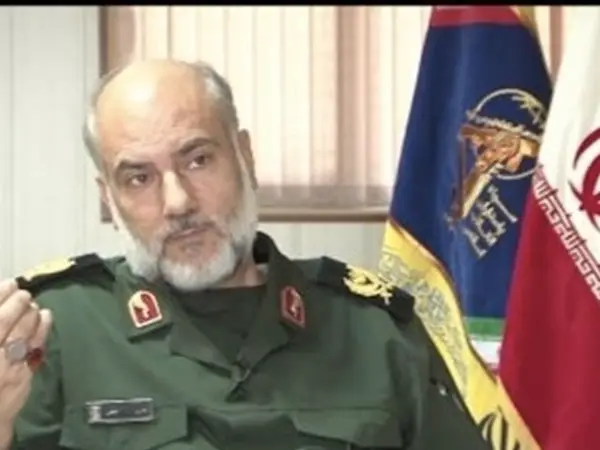The head of the IRGC's unit responsible for the Supreme Leader’s protection was replaced two days after the dismissal of its intelligence chief, Hossein Taeb.
In a statement Saturday, the IRGC Spokesman Ramezan Sharif announced that Brigadier General Hassan Mashruifar has been appointed as commander of an elite IRGC unit, Sepah-e Vali-ye Amr (Supreme Leader’s [Protection] Corps, by the IRGC Commander-in-Chief Hossein Salami.
The statement also said Salami awarded the former commander of the protection unit, Brigadier General Ebrahim Jabbari with a certificate of appreciation for his services. Jabbari served as Taeb’s deputy when he headed the IRGC’s militia organization (Basij) before he was appointed as the IRGC intelligence chief.
Sepah-e Vali-ye Amr is one of the subsidiaries of the IRGC’s Intelligence Protection Organization (Sazeman-e Hefazat-e Sepah). Sepah-e Vali-ye Amir is solely responsible for protection of the Supreme Leader and was officially established in mid-1980s and is believed to consist of as many as 12,000 highly trained forces.
Although many consider Ta’eb’s replacement after 13 years at the helm of the IRGC Intelligence Organization (SAS) as ‘dismissal’, for reasons not yet revealed, media linked with the IRGC on Saturday downplayed the importance of Ta’eb’s removal and claimed that replacing him was a step towards an “intelligence onslaught on the enemy” and an “increase in operations against Israel” by the SAS.
Replacing Ta’eb, a mid-ranking cleric with a military background, with an IRGC general signals “restructuring for a new era and as a step forward”, the IRGC-linked Tasnim news agency wrote. This means that Iran can take “further steps against the ambitions of the United States and Israel,” Tasnim said, adding that Ta’eb will be contributing to the restructured organization as an adviser to the commander-in-chief of the IRGC.
The title of adviser is often given to officials in Iran after dismissal to protect their reputations and not to admit that the persons in question made mistakes or were not fit for the positions they occupied.
The IRGC-linked Javan newspaper called the appointment of Brigadier General Mohammad Kazemi, referred to by his nom de guerre Haj Kazem, as “injection of new blood” into SAS to fight against “foreign enemies, their lackeys and mercenaries, and hostile elements [political activists and organizations]”.
Sources familiar with the situation have told Iran International that Taeb was replaced due to long-simmering opposition by other top security figures, including the chief commander of IRGC’s Quds (Qods) Force Esmail Ghaani (Qaani) and Esmail Khatib, the minister of intelligence.
They also said Ta’eb’s high-ranking opponents argued that his organization did not use “the elementary standards for neutralizing terrorist activities” in Iran and charged that the recruitment of “amateurish and non-professional” elements in extraterritorial operations harmed Iran’s other security entities.
Jamshid Barzgar, journalist, told Iran International on Saturday that changes in the SAS leadership will not be effective against the intelligence operations conducted by Israel inside Iran.
According to Barzgar, the revelation of plans to dismiss Ta’eb by Israel’s KAN television several days before its announcement in Iran is a sign of deep penetration by Israeli intelligence in Iran, which has caused huge concern of various officials regarding their own safety and security in the face of Israeli threats.
The reason for Ta’eb’s dismissal is due more to disputes and disagreements inside the Iranian intelligence bodies rather than his inefficiency in dealing with foreign threats or carrying out operations, Barzgar said, adding that his successor has also been responsible for all these failures.
The Islamic Republic has two major intelligence organizations: the Ministry of Intelligence and the IRGC Intelligence Organization (SAS in Persian acronym). The ministry nominally is under the president’s control and regards itself as the most professional entity. But in fact, it is also controlled by Khamenei, who selects the minister.
